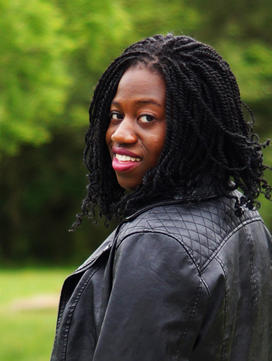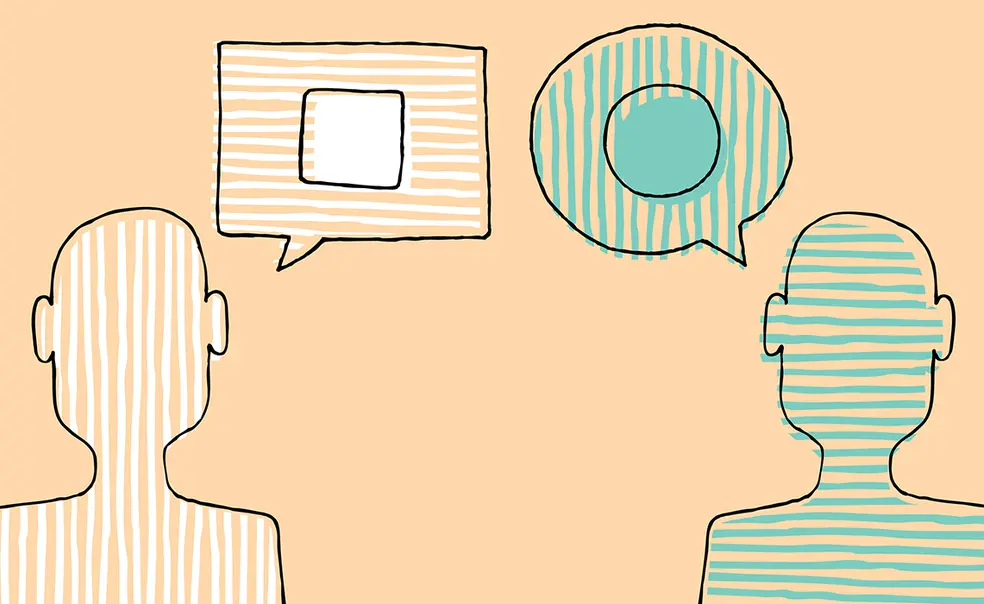Voices: Listening to Know our Fellow Citizens
An alumna’s response to the presidential election
The following essay was originally published at listenfirstproject.org.
On Nov. 9, while reading coverage of the election results, I came across a message by John Tasioulas, a politics and philosophy professor at King’s College London. Tasioulas tweeted, “One lesson common to #Brexit and #Trump: we don’t know our fellow citizens. A dangerous place to be in a democracy.”
This statement illuminates an important point that has been overlooked during the 2016 election cycle — the idea that we don’t actually know what our neighbors think, what they believe, or how they feel. If we did know our fellow citizens better, would we be so surprised by each new twist and turn during this election season? One of the only things Americans today seem to agree on is that there are significant divides within the United States, a real disconnect that separates us from our fellow citizens. Refusing to listen to and interact with people who share different views has shielded us from clashes of opinion and kept us in the dark as to each other’s thoughts and concerns. Being kept in the dark, unaware of how large swaths of the population think and feel, has left many surprised each time a new political or social development has occurred.
The divide started when we stopped listening to each other. But the divide increased when we actively began to silence each other. People have spent time crafting isolated bubbles where they are surrounded by others who share their opinions and beliefs. Anyone outside the bubble is muted and considered to be an enemy, a stranger — someone not worthy of being understood, only of being condemned. Time and again over the last year, news outlets and social media platforms have displayed vicious and vehement attacks between people who dare to have a difference of opinion.
As a result, people responded by keeping their opinions close to the vest or choosing to go on the defensive, attacking opponents first and often not bothering to ask questions later. The entire 2016 election season, people regularly dismissed and vilified each other. I saw social media statuses declaring that “If you support _____, you should unfollow/unfriend me now,” and that “People who support _____ are [insert insult of choice].” All I have seen are people utterly rejecting the opportunity to talk to others standing across the aisle, not even taking the time to respectfully ask why they were standing there in the first place. Rather, they assumed that their side was good/moral/right/smart while the other side was bad/evil/wrong/idiotic. No one group has been responsible for this; all have been guilty of at best dismissing and at worst demonizing the opposing side.
READ MORE After the Election: The Campus Responds
Refusing to understand not just why people think or feel a certain way but the fact that they feel that way at all is dangerous, particularly, as Tasioulas said, for a democracy, where people vote on decisions that affect everyone. When we shut down, block out, distance, mute, dismiss, invalidate, and deny others the right to express themselves; when we judge and vilify people for opinions that we don’t fully understand, we only hurt ourselves. Shutting people out and shutting people up does no one any good. And it leaves individuals in the dark as to how large portions of society feel and think and why they feel and think a certain way. It’s a real problem when you don’t know your fellow citizens. And that problem started when we stopped listening to and silenced our fellow citizens.
The 2016 election cycle has revealed the cracks in our country, the stark dividing lines that are separating strangers, friends, and loved ones. The effects of these revelations will not disappear in the night, but will persist, so long as we continue to dismiss and deny each other the right to be heard. I don’t want to be a part of that. I don’t want to sit in my one-sided bubble or stay on my side of the aisle. I want to know my fellow citizens, I want to understand my neighbor, I want to do my part to help us learn and heal and grow, moving past the division of the last several months. So I’m reaching my hand across the aisle to listen and learn. Will you join me?

Kemi Adegoroye ’13 is the vice president of strategic initiatives at Listen First Project and the founder and creative director of 13 Roses Productions. She is in her final year of law school at the University of Virginia School of Law and is studying abroad at Sciences Po in Paris, France.
This essay is part of a new series at PAW Online. If you would like to contribute to the series, contact us at paw@princeton.edu.












No responses yet